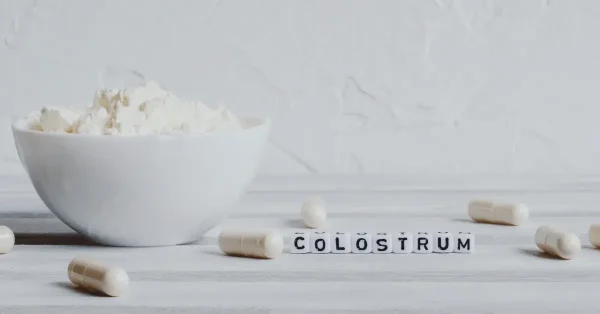Messages about nutrition and the latest diets are everywhere. With all the attention devoted to discussing nutrition, it seems like it must be pretty important.
But why? What can nutrition do for us that is worth all the hype?
Nutrition is Important in Each Phase of Life
Nutrition is crucial for the growth and development of children and adolescents.
A child’s body uses nutrients to build strong bones, grow tall, and expand cognitive capacity. Proper nutrition helps children prevent and fight off illness. It gives them energy and allows them to focus and learn in school.
Good nutrition is the foundation on which a healthy and productive human life is built, and it starts at the very beginning of that life.
Once we reach adulthood, nutrition remains important in a few of the same ways and in some additional ones. For adults, good nutrition can help maintain a healthy weight, prevent non-communicable diseases, support a strong immune system, enable reproduction, enhance productivity, and promote longevity.
Let’s dive a little deeper into all the ways that good nutrition can improve health and quality of life.
Weight and Non-Communicable Diseases
Diet plays a huge role in achieving and maintaining a healthy weight.
In two large clinical trials, participants were assigned to one of 4 different diets which differed in their carbohydrate, fat, and protein distributions but all limited saturated fat, included a healthy amount of fiber, used low glycemic index (i.e. low sugar, high fiber) foods and created an energy deficit of 750 calories per day.
Essentially, these were 4 different versions of a generally healthy diet that limited the overall intake of food in order to consume fewer calories than were used by the person each day (i.e. created an energy deficit).
In both trials, participants across all 4 diets lost similar amounts of weight, lost more fat than muscle mass, maintained the weight loss similarly, and improved risk factors for cardiovascular disease and diabetes in a similar manner.
From this evidence, we can conclude that a generally healthy diet with reduced calorie intake can lead to meaningful weight loss regardless of the specifics. (1) (2)
Obesity is in itself a risk factor for some non-communicable diseases, such as type 2 diabetes, kidney disease, and even some cancers. This means that maintaining a healthy weight through good nutrition is already going a long way to prevent them.
With cardiovascular disease, weight is important as well, but there are also some more specific ways that nutrition is involved in prevention.
The American Heart Association and the American College of Cardiology recommend diets that emphasize fruits, vegetables, and whole grains, include low-fat dairy, fish, poultry, legumes and nuts, and limit processed foods, red meats, added sugar, saturated fat, and sodium. (3)
For people who suffer from non-communicable diseases, such as diabetes, nutrition also becomes important for managing their conditions.
In addition to a generally healthy diet, people with diabetes need to regulate their blood sugar via carbohydrate intake in order to prevent complications. Those with chronic kidney disease may need to limit certain nutrients that can no longer be processed as efficiently as their condition progresses.
The list goes on, but you get the idea.
Immunity
Aside from the prevention of chronic diseases, nutrition also plays a role in helping our bodies to be prepared for more acute illnesses and infections. Specific micronutrients such as vitamins A, C, D, E, and Zinc, among others, contribute to a strong immune system.
In a more general sense, obesity, chronic diseases, and undernutrition are all linked with poorer outcomes in acute infections or injuries. Maintaining a healthy weight and consuming a healthy diet containing lots of fresh fruits and vegetables, fish, and nuts supports a healthy immune system.
A large portion of immune cells reside in the gut and depend on good gut health, so dairy and other fermented products may also be beneficial for the probiotics they contain. (4)
Reproduction
Pregnancy and lactation are nutritionally demanding times for a mother, and what she eats has an enormous impact on her health and the development of her baby.
She needs to make sure that she is supplying all the nutrients that her baby needs to develop, while also maintaining her own bodily processes and functions.
Maintaining an appropriate weight and adequate diet before, during, and after pregnancy is greatly beneficial for the health of both mom and baby.
Even with regards to fertility, nutrition has an important role to play. Both obesity and being underweight can have negative effects on fertility in men and women because both result in metabolic alterations that can affect reproductive hormones. (5)
It is also well understood that a healthy diet that includes seafood, poultry, fruits, vegetables, and whole grains (basically a Mediterranean diet) is associated with better fertility in both women and men (6).
Brain Health, Energy and Focus
Proper nutrition provides us with energy and enables us to focus. We see improvements in academic performance at school (7) and work productivity in adults (8) with a healthy diet and an active lifestyle.
Eating healthy can also contribute to generally feeling good, increased motivation, and positivity, all of which have benefits for mental health. Home-made meals, eaten socially with family or friends, can contribute to both physical and mental health at the same time.
As we age, brain health becomes a concern. We are just starting to understand the role of nutrition in brain health, but research has shown that a healthy diet can help prevent cognitive decline and lower the risk of Alzheimer’s Disease. (9) (10)
Longevity
Of the top 10 causes of death in the United States, six can be linked in some way to nutrition and lifestyle: heart disease, cancer, stroke, Alzheimer’s disease, diabetes, and kidney disease. (11)
That isn’t to say that these diseases are always preventable or always caused by an unhealthy lifestyle.
However, if there was something you could do right now to potentially reduce your risk of a number of deadly diseases, and that something had virtually no side effects or negative impacts, wouldn’t you do it? You’re risking nothing but could be rewarded with a longer, healthier life. There’s no downside.
Research has shown that higher intakes of whole grains, vegetables, fruits, nuts, and fish are associated with a lower risk of all-cause mortality (aka death by any cause) while higher intakes of red meat and processed meats are associated with a higher risk of all-cause mortality. (12) (13)
In other words, eating a healthy diet can help you to live longer.
What is a Healthy Diet?
Okay, we get it. Nutrition is important for lots of reasons. So what do we do with that information? What exactly should we be eating?
The healthiest diets with the most scientific evidence behind them have a few key things in common. To get started with a healthier diet today, try some of these changes:
- Eat lots of fruits and vegetables
- Swap out refined grain products for whole grains
- Decrease your red and processed meat intake in favor of fish, lean poultry, and plant-based protein
- Eat a moderate amount of healthy fat
- Limit processed foods that contain lots of added sugar, sodium, and unhealthy fats
- Eat a wide variety of different foods to get all the nutrients you need
- Watch your portion sizes
- Drink plenty of fluids, especially water
- Include physical activity, quality sleep, and stress management techniques for an overall healthy lifestyle
Summary
Good nutrition and good health are linked in numerous ways. We need the right nutrients to grow and develop, to learn and perform, to reproduce, and to lead long healthy lives.
Eating a healthy diet as part of a healthy lifestyle has benefits at every stage of life.
- https://www.ncbi.nlm.nih.gov/pubmed/22258266
- https://www.ncbi.nlm.nih.gov/pubmed/19246357
- https://www.ncbi.nlm.nih.gov/pubmed/24239922
- https://www.ncbi.nlm.nih.gov/pmc/articles/PMC6723551/
- https://www.ncbi.nlm.nih.gov/pmc/articles/PMC6568019/
- https://www.ncbi.nlm.nih.gov/pubmed/28844822
- https://www.ncbi.nlm.nih.gov/pubmed/32033054
- https://www.ncbi.nlm.nih.gov/pubmed/31830955
- https://www.ncbi.nlm.nih.gov/pubmed/29974344
- https://www.ncbi.nlm.nih.gov/pubmed/31209456
- https://www.cdc.gov/nchs/fastats/deaths.htm
- https://www.ncbi.nlm.nih.gov/pubmed/31631676
- https://www.ncbi.nlm.nih.gov/pubmed/28446499









3 Responses
Your dedication to your readers is admirable.
Your content is always engaging.
Somebody essentially lend a hand to make significantly posts I might state. That is the very first time I frequented your web page and up to now? I surprised with the research you made to create this particular put up amazing. Excellent job!